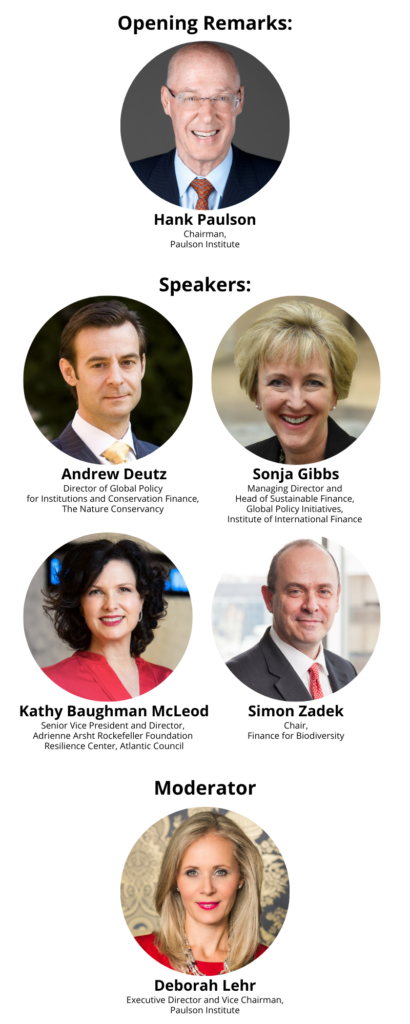The COVID-19 pandemic should have been a predictable crisis, and yet we are in danger of sleepwalking into another, caused by staggering biodiversity loss. With tropical forests in retreat and the extinction of species thought to be about 1,000 times the natural rate, nature’s ability to provide the goods and services on which we depend is being undermined, presenting enormous risks to prosperity.
As governments rebuild and invest in the wake of the pandemic-induced crisis, policymakers must learn to value nature, providing the right conditions and incentives to drive change. One important step is to value nature as we do traditional goods and services to create incentives to avoid biodiversity destruction, manage climate change and preserve lives and livelihoods. Harnessing the power of markets can protect our environment and prevent its rapid destruction.
The Paulson Institute and Finance for Biodiversity (F4B) in partnership with The Nature Conservancy, the Atlantic Council’s Adrienne Arsht Rockefeller Foundation Resilience Center, and the Institute of International Finance hosted a webinar on Tuesday, April 27 to explore recommendations for how best to address this crisis.
Leading experts from finance, conservation, business, and policy sectors shared their perspectives about the looming biodiversity and climate crises and explored practical ways that nature—trees, bees and bats—can be considered as valuable financial assets.
This webinar was the first in a series of joint events focused on the nexus between nature and financial markets.





